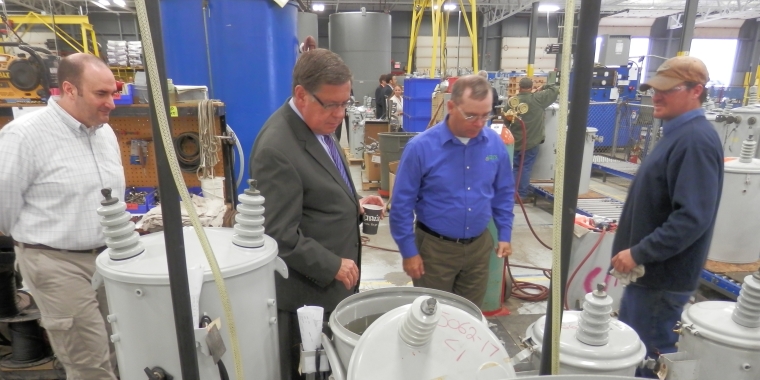
New Utility Tax Takes Effect
By Jake Palmateer
ONEONTA - Area residents are starting to see a new charge on their utility bills.
A "conservation assessment" and an increase in a fee to fund the Public Service Commission are resulting in a 2 percent increase in energy bills, according to National Grid and New York State Electric & Gas.
The utility increases will hit residents and businesses alike, said state Sen. James Seward, R-Milford.
"We estimate for a family, it could cost an additional $200 a year for electricity," Seward said. "For businesses, you get up into the thousands of dollars."
The two measures were passed this year as part of the state budget, and went into effect July 1.
Customers who are getting bills for any period after July 1 will see a new line item on their bill, National Grid spokesman Patrick Stella said Monday.
As part of the state's 2009-10 budget, the PSC fee was increased to 1 percent, and a conservation assessment of 1 percent was added to it. The commission regulates the state's utilities.
Previously, the PSC fee, which amounted to about one-third of 1 percent, was bundled with the delivery charge and was not visible to the consumer as a separate item, Stella said.
"It's certainly something we weren't really in favor of," he said. "Taxes and fees on utility bills tend to hurt those who can least afford it, and they really don't serve to provide better service to customers on our end."
The charge is listed on bills under a line titled ISAS, Stella said.
Utilities are required to collect the conservation assessment from all customers for the state's general fund through March 2014, according to Clayton Ellis, corporate communications manager for NYSEG.
The new conservation assessment is expected to generate $540 million for the state general fund in the first fiscal year it is in effect, Ellis said Monday.
The assessment will be included in the delivery charge on NYSEG customers' bills, he said.
"NYSEG is informing customers of this change with a special bill insert and a message on bills," Ellis said.
Seward said the assessment is part of an $8 billion package of taxes and fees proposed by Gov. David Paterson to close the budget gap for the 2009-10 fiscal year, which Seward said he voted against.
"This increase is really a tax," Seward said Monday. "This utility tax is particularly offensive. It doesn't have anything to do with the ability to pay."
This year's state budget of $132 billion is a nearly 9 percent increase in spending from the 2008-09 budget.
But it closed a deficit of $17.7 billion, and much of the year-to-year increase is because of billions in federal stimulus dollars, according to the state Division of the Budget.
Seward said he would "do everything in my power to make (the fee) expire" as scheduled in 2014.
But the state has a poor track record when it comes to revenue streams intended to be temporary, he said.
"It's hard to roll them back," Seward said.
This is not the only issue that will be affecting residents, he said. "Unfortunately, this is only the beginning. People are going to get other surprises."
Seward said those include higher fees for driver's licenses, car registrations and hunting and fishing licenses.
